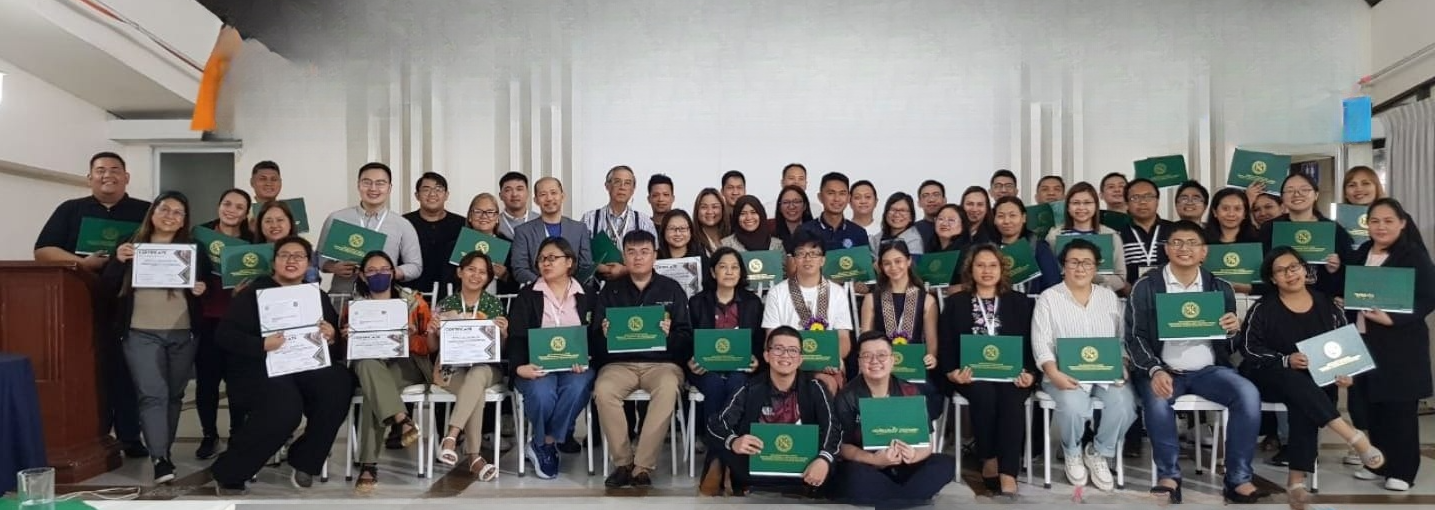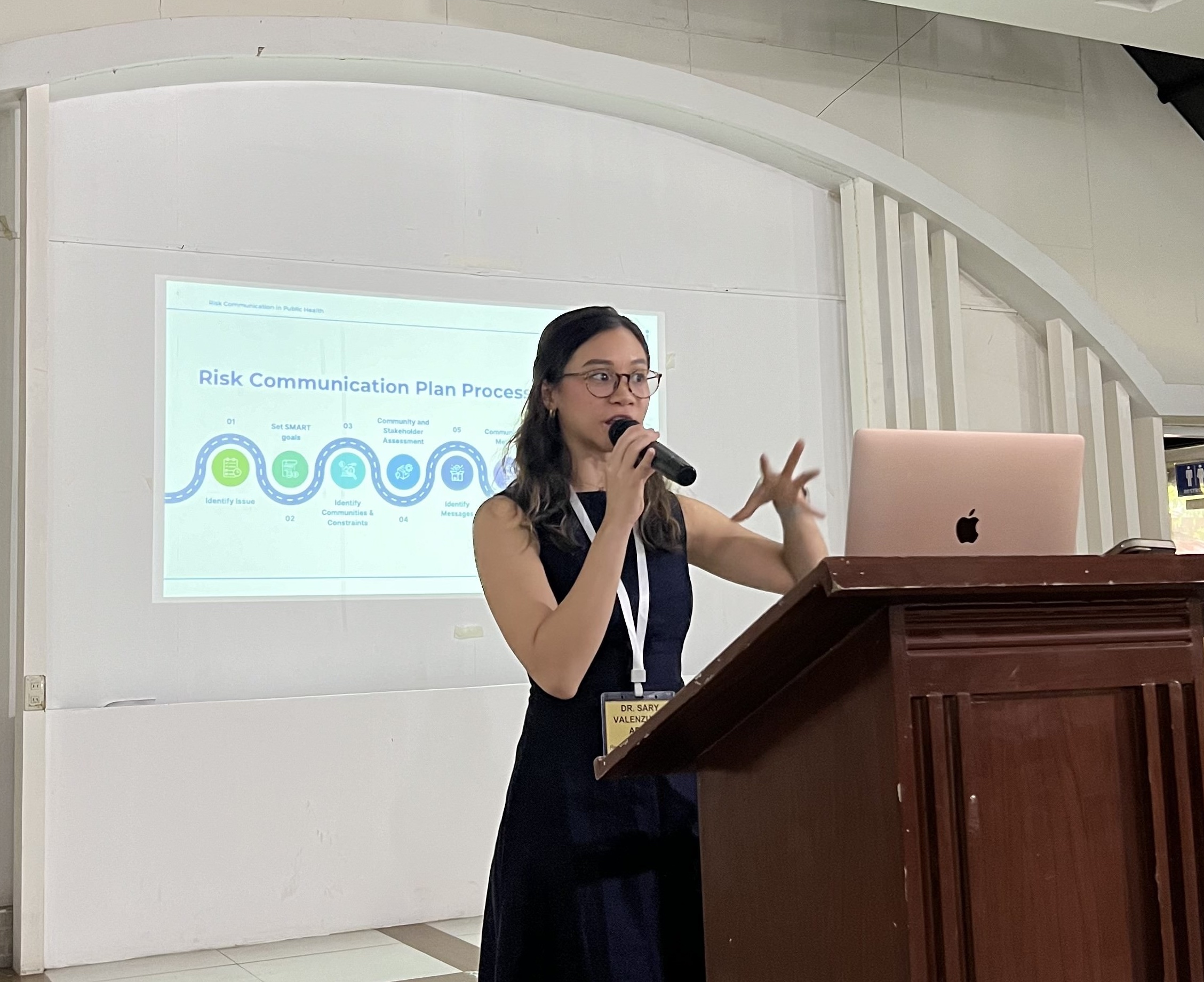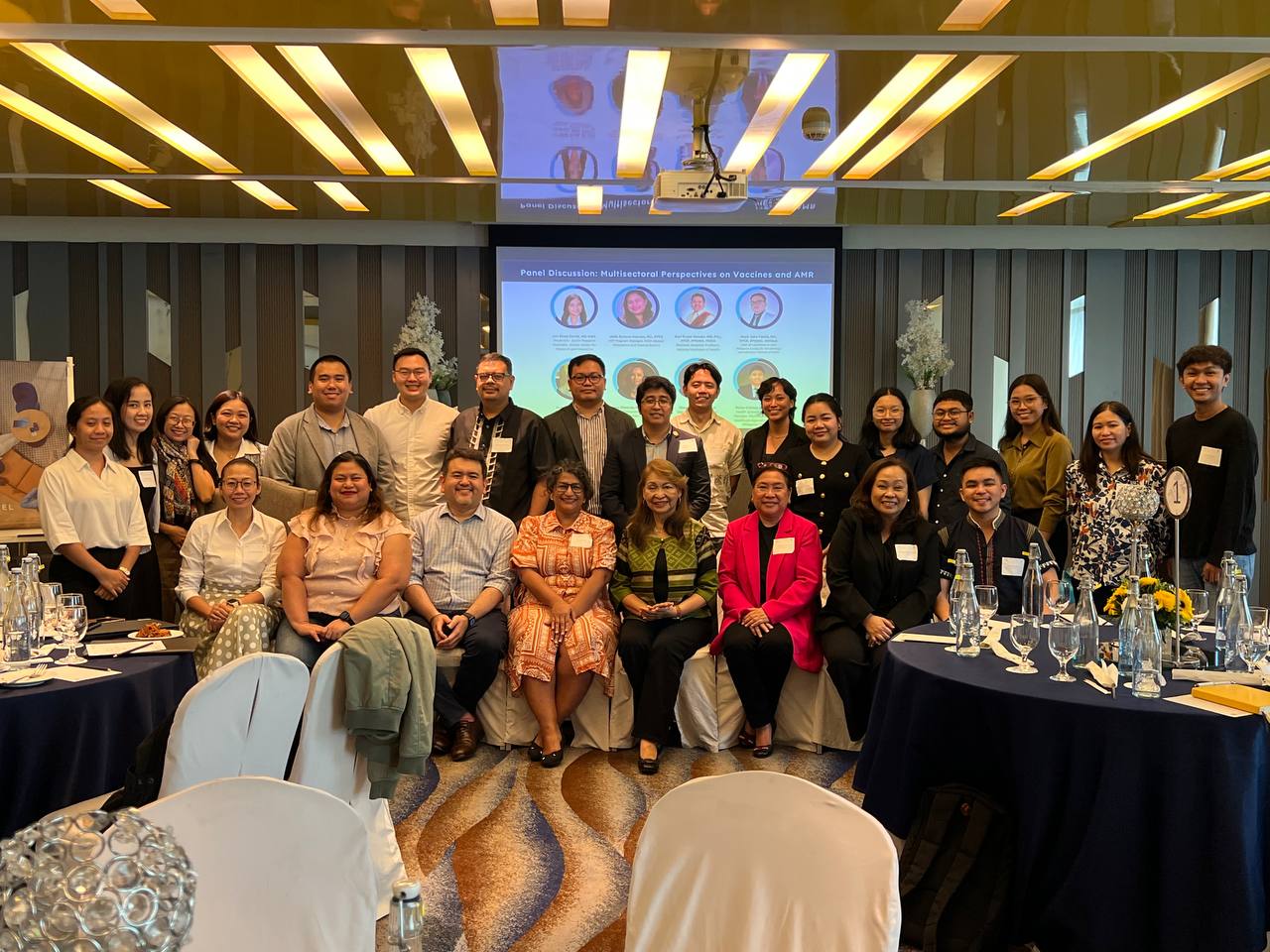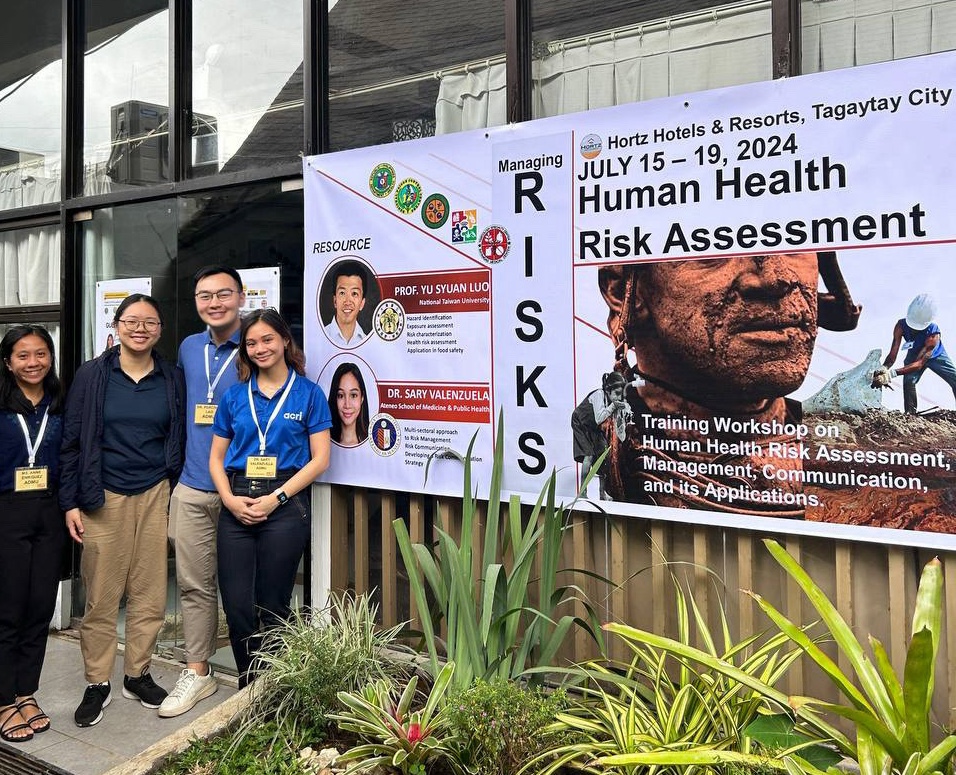
Empowered Assessments: Strengthening the Country’s Toxicology Centers
As toxic exposures continue to pose significant public health challenges in the Philippines' diverse archipelagic setting, strengthening the capacity of toxicology centers becomes increasingly crucial. The Ateneo Center for Research and Innovation (ACRI), in partnership with the Batangas Medical Center Toxicology Specialty Center, organized a comprehensive "Training Workshop on Human Risk Assessment, Management, Communication, and its Applications" last July 15-19, 2024, at Hortz Hotel, Tagaytay City.
Medical professionals and experts from Department of Health (DOH) Toxicology Specialty Centers across the country participated in this vital initiative aimed at enhancing the nation's preparedness and response capabilities in managing chemical emergencies and toxic exposures.
The training featured intensive lecture sessions coupled with interactive activities designed to reinforce practical applications. Dr. Yu-Syuan Luo, a distinguished professor from National Taiwan University and toxicology expert, led sessions on hazard identification, exposure assessment, risk characterization, health risk assessment, and food safety applications. To bridge theory and practice, participants assessed real-world case studies that demonstrated the practical implementation of these assessment tools.
Prof. Luo (in yellow) assisting participants during the case study activity. Photo from Facebook page of Batangas Medical CenterToxicology Specialty Center
Dr. Gelo Apostol, head of ACRI's Environmental Health Flagship program and environmental health specialist, emphasized the critical importance of multi-sectoral collaboration in risk assessment. His lecture underscored the necessity of developing robust coordination systems to facilitate effective partnerships among various stakeholders.

Contributing valuable insights on community engagement, environmental health researcher Dr. Sary Valenzuela shared proven strategies for effective risk communication. She emphasized that assessment skills must be complemented by the ability to communicate findings clearly to diverse audiences, ensuring that critical information reaches and benefits communities.
The training workshop represents ACRI's commitment to bolstering national and local initiatives for poison prevention and mitigation efforts, marking a significant step forward in strengthening the Philippines' toxicology response capabilities.
Members of the Environmental Health and Global Health Security Flagship Program as participants and facilitators of the health assessment training workshop.
See more here: https://www.facebook.com/share/p/19xjxTRfVn/
-

The Unseen Link: Vaccines and Antimicrobial Resistance in the Philippine Context
Antimicrobial resistance is already claiming lives, and the global pipeline for new antibiotics is shrinking. In August 2025, experts gathered to explore a critical question: Can vaccines become a frontline weapon against AMR? The science is clear—by preventing infections, vaccines reduce antibiotic use and slow resistance. But translating this into action means confronting data gaps, political barriers, and financing challenges. As one expert noted: "When we vaccinate, we reduce the frequency of these diseases. That means fewer antibiotics—used and misused." With no country in the Global South yet integrating vaccines systematically into AMR strategies, the Philippines has a chance to lead—if stakeholders can move from consensus to action.
-

Advancing vaccine uptake to mitigate antimicrobial resistance (AMR) in low and middle-income countries of South or South-East Asia
This project explores how strengthening vaccine uptake can serve as a key strategy to mitigate antimicrobial resistance (AMR) in the Philippines and across South and South-East Asia. By reducing the burden of vaccine-preventable diseases and the unnecessary use of antibiotics, the study aims to provide actionable recommendations for national and institutional stakeholders to better integrate vaccination initiatives into AMR control efforts, ultimately contributing to stronger, more resilient health systems.

